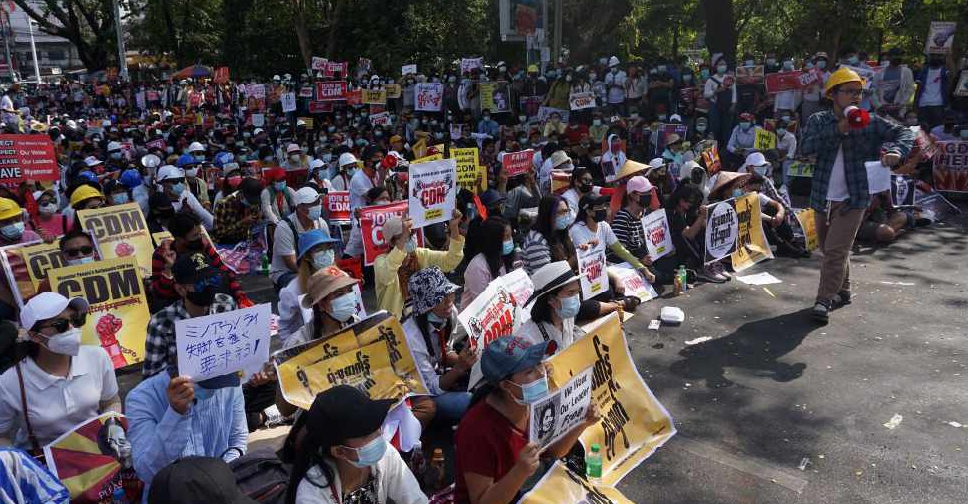
Two people were killed in Myanmar's second city Mandalay on Saturday when police fired to disperse protesting opponents of a Feb. 1 military coup, emergency workers said.
"Twenty people were injured and two are dead," said Ko Aung, a leader of the Parahita Darhi volunteer emergency service agency in the city.
Opponents of the coup took to the streets in several Myanmar cities and towns with members of ethnic minorities, poets and transport workers among those demanding an end to military rule and the release of elected leader Aung San Suu Kyi and others.
Some protesters fired catapults at police in Mandalay who responded with tear gas and gun fire, though it was initially not clear if they were using live ammunition or rubber bullets.
One man died from a head wound, media workers including Lin Khaing, an assistant editor with the Voice of Myanmar media outlet in the city, and a Mandalay emergency service said.
A volunteer doctor confirmed there had been two deaths: "One shot in the head died at the spot. Another one died later with a bullet wound to the chest."
Police were not available for comment.
The protests against the coup that overthrew the government of veteran democracy campaigner Suu Kyi have shown no sign of dying down. Demonstrators are sceptical of the army's promise to hold a new election and hand power to the winner.
A young woman protester died on Friday after being shot in the head last week as police dispersed a crowd in the capital, Naypyitaw, the first death among anti-coup demonstrators.
The army says one policeman died of injuries sustained in a protest.
On Saturday, young people in the main city of Yangon carried a wreath and laid flowers at a memorial ceremony for the woman, Mya Thwate Thwate Khaing, while a similar ceremony took place in Naypyitaw.
"The sadness from her death is one thing, but we've also got courage to continue for her sake," said student protester Khin Maw Maw Oo in Naypyitaw.
The demonstrators are demanding the restoration of the elected government, the release of Suu Kyi and others and the scrapping of a 2008 constitution, drawn up under military supervision, that gives the army a major role in politics.
The army seized back power after alleging fraud in Nov. 8 elections that Suu Kyi's National League for Democracy swept, detaining her and others. The electoral commission had dismissed the fraud complaints.
Suu Kyi faces a charge of violating a Natural Disaster Management Law as well as illegally importing six walkie-talkie radios. Her next court appearance is on March 1.



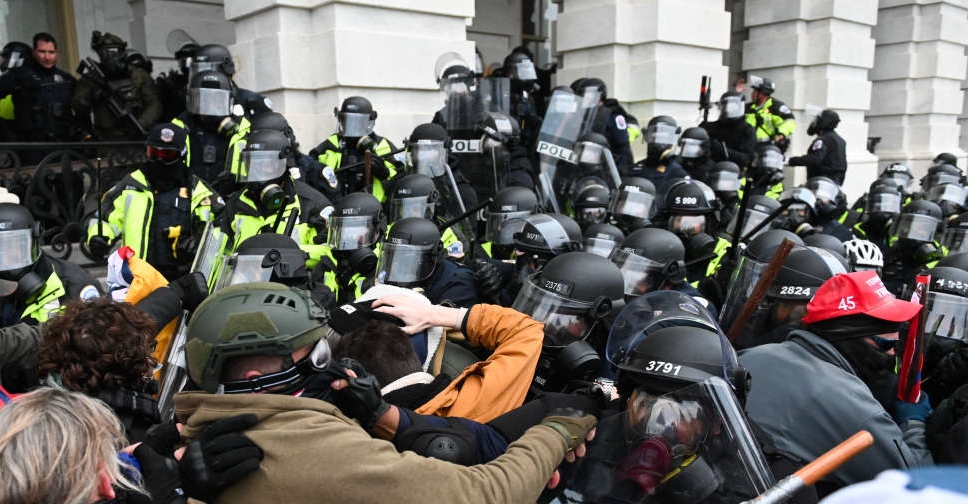 US Justice report finds Trump engaged in 'criminal effort' to overturn 2020 election
US Justice report finds Trump engaged in 'criminal effort' to overturn 2020 election
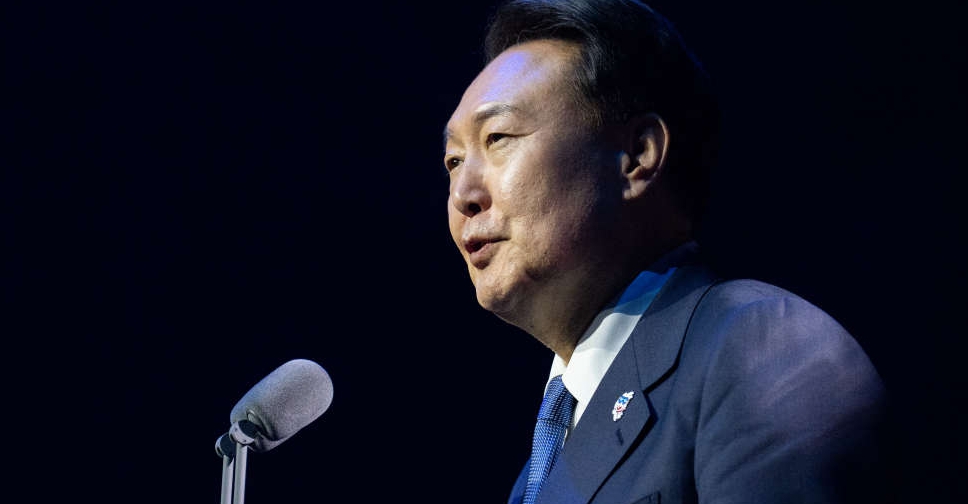 Impeachment trial of South Korea's Yoon adjourned
Impeachment trial of South Korea's Yoon adjourned
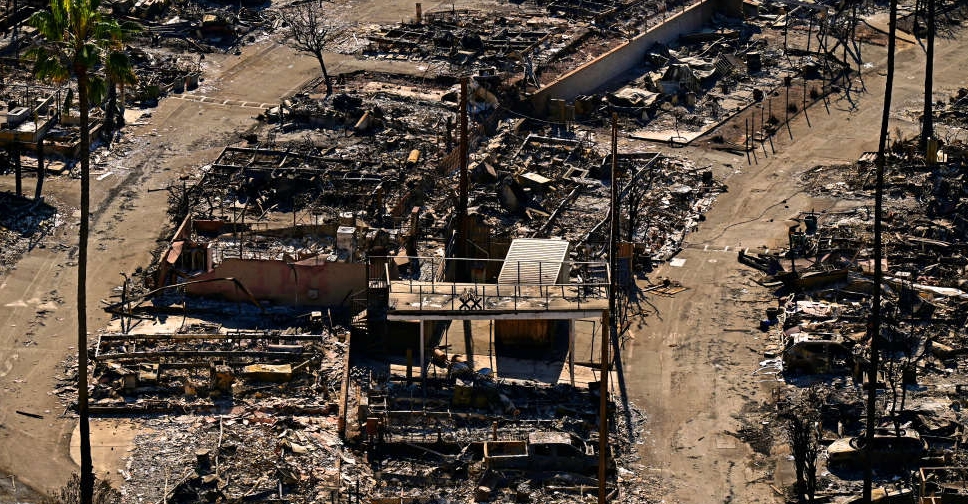 Los Angeles utility sued for Palisades Fire water shortage
Los Angeles utility sued for Palisades Fire water shortage
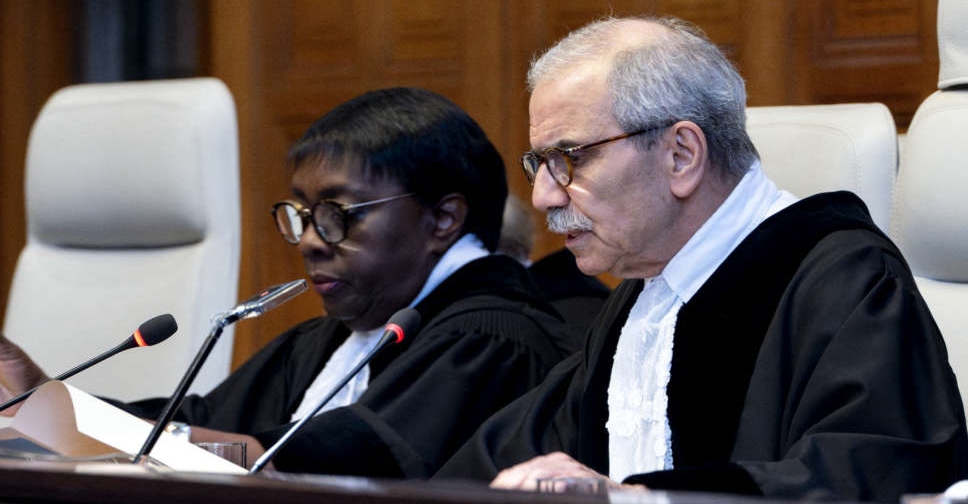 Lebanon's Nawaf Salam to be designated PM
Lebanon's Nawaf Salam to be designated PM
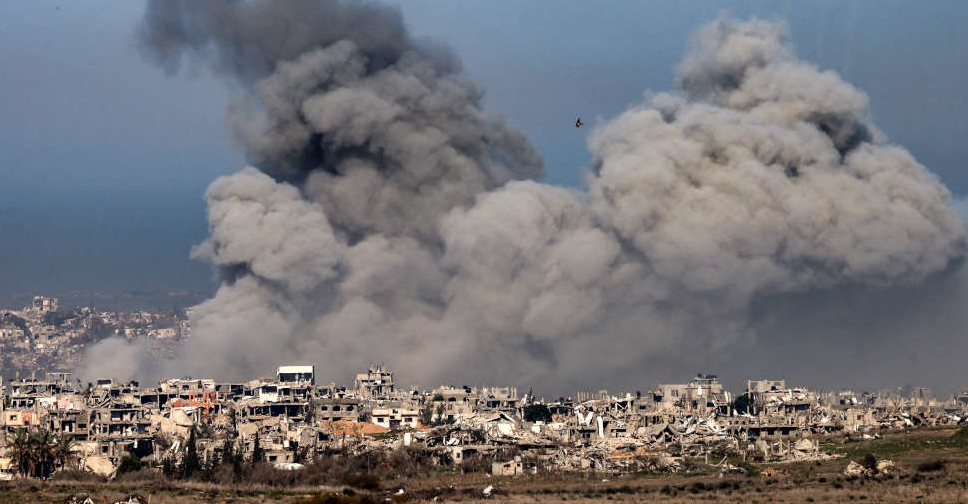 Qatar hands Israel, Hamas 'final' draft of Gaza ceasefire deal
Qatar hands Israel, Hamas 'final' draft of Gaza ceasefire deal







